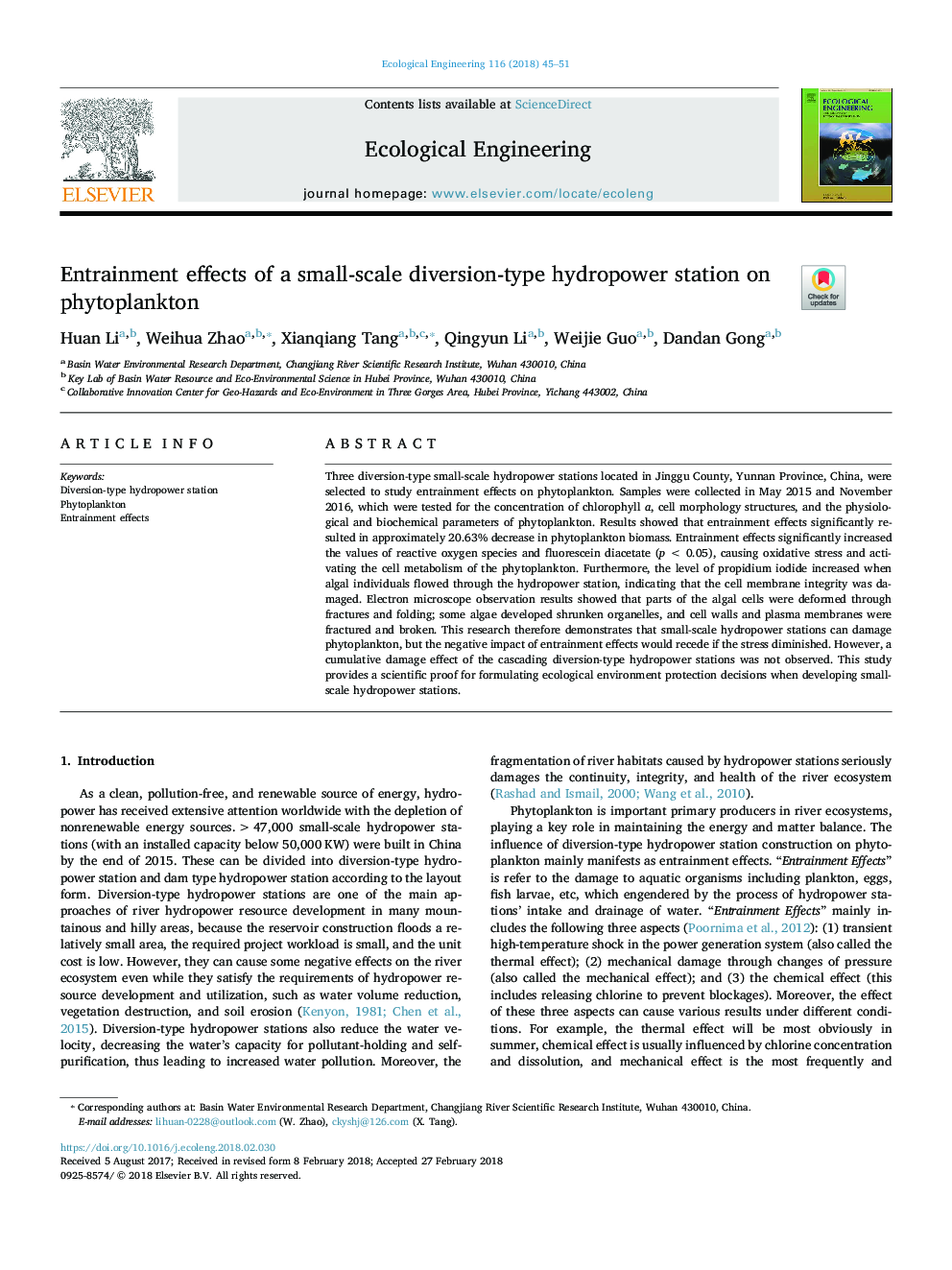| Article ID | Journal | Published Year | Pages | File Type |
|---|---|---|---|---|
| 8847907 | Ecological Engineering | 2018 | 7 Pages |
Abstract
Three diversion-type small-scale hydropower stations located in Jinggu County, Yunnan Province, China, were selected to study entrainment effects on phytoplankton. Samples were collected in May 2015 and November 2016, which were tested for the concentration of chlorophyll a, cell morphology structures, and the physiological and biochemical parameters of phytoplankton. Results showed that entrainment effects significantly resulted in approximately 20.63% decrease in phytoplankton biomass. Entrainment effects significantly increased the values of reactive oxygen species and fluorescein diacetate (pâ¯<â¯0.05), causing oxidative stress and activating the cell metabolism of the phytoplankton. Furthermore, the level of propidium iodide increased when algal individuals flowed through the hydropower station, indicating that the cell membrane integrity was damaged. Electron microscope observation results showed that parts of the algal cells were deformed through fractures and folding; some algae developed shrunken organelles, and cell walls and plasma membranes were fractured and broken. This research therefore demonstrates that small-scale hydropower stations can damage phytoplankton, but the negative impact of entrainment effects would recede if the stress diminished. However, a cumulative damage effect of the cascading diversion-type hydropower stations was not observed. This study provides a scientific proof for formulating ecological environment protection decisions when developing small-scale hydropower stations.
Keywords
Related Topics
Life Sciences
Agricultural and Biological Sciences
Ecology, Evolution, Behavior and Systematics
Authors
Huan Li, Weihua Zhao, Xianqiang Tang, Qingyun Li, Weijie Guo, Dandan Gong,
